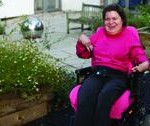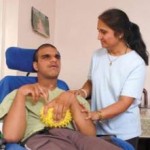
When choking risk is identified for people with learning disabilities and fluid consistency modification is prescribed, it is critical that staff get the consistency right. Here we report on an efficacy study which looked at whether the use of Thickness Indicator Model tubes as a visual aid in training improved the efficacy of staff training.
[read the full story...]








